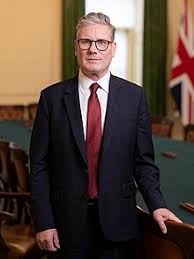This week I am looking at the country of England, last
year I wrote about the United Kingdom of which England is part.
The area now known as England has a long history,
with evidence of human presence dating back over 800,000 years, with stone
tools and footprints discovered at Happisburgh in Norfolk.
Though the Kingdom of England, as a unified entity,
emerged in the late 9th century and existed until 1707 when it united with
Scotland to form the Kingdom of Great Britain.
The Romans invaded and occupied the area in AD 43,
leaving a significant impact on the region's culture and infrastructure. After
the Romans left in the 5th century, the area was inhabited by various
Anglo-Saxon kingdoms.
The Kingdom of England emerged in the late 9th
century as various Anglo-Saxon kingdoms were unified under a single ruler.
The Kingdom of England and the Kingdom of Scotland
were united under one monarch in 1603, and in 1707, they formally merged to
form the Kingdom of Great Britain. The Kingdom of Great Britain existed
from 1707 to 1801, when it merged with the Kingdom of Ireland to form the
United Kingdom of Great Britain and Ireland.
England's population is estimated to be around 56.5 million, representing about 84.3% of the total UK population.
The dominant religion in England is Christianity,
with the Church of England being the established state church, although it
represents less than half of the population, with a growing number of people
identifying as non-religious.
Other religions include Islam, Hinduism, Sikhism,
Judaism, Buddhism. There is also an increase in the number of people
identifying as non-religious.
Besides the Church of England, other Christian
traditions include Roman Catholicism, Methodism, Presbyterianism, Mormonism,
and Baptists.
The current Prime Minster is Keir Starmer elections
are held when the prime minster calls for one. As the ability to request a
dissolution of parliament and call a general election lies with the prime
minister. This means that a prime minister can effectively announce an election
at a time of their choosing.
If the prime minister does not call an election
earlier, then parliament would be automatically dissolved “the beginning of the
day that is the fifth anniversary of the day on which it first met”, with
the election being held 25 working days after that date. This means the latest
date for the next general election will be 21 August 2029.
The legal age to drink, vote or marry is 18,
although until 2023 you could legally marry as young as 16 with your parents’
consent.
The law also expands the offence of forced marriage
to make it illegal to arrange for a child under 18 to marry, regardless of
whether force or coercion is used.
Adults who facilitate underage marriages can face up
to seven years in prison.
The law change aims to protect vulnerable children
from being forced into marriage and to address the damaging impact of child
marriage.
The legal minimum age to work is 13 years old,
but with restrictions, and young people can work full-time once they reach the
minimum school leaving age which is 16.
The legal age to join the British Armed Forces
is 16, but with parental consent, and those under 18 will be considered
junior soldiers until they turn 18, at which point they can become regular
soldiers.
If you're under 17 years and 6 months old, you'll
start your Army career at the Army Foundation College, Harrogate, as a Junior
Soldier. You can become a regular soldier at 18 years old.
You can start your application when you're 15 years
and 7 months old, but you won't be able to go to the assessment centre until
you're at least 15 years and 9 months old.
Those who sign on when 16 or 17 must serve until
they are 22. However, a soldier cannot be deployed to the front line until
they are aged 18.
In England, you can start receiving the state
pension, at the age of 66, but it is set to rise to 67 by 2028 and to 68 from
2044.
Ok that’s enough for this post, I may do a part two
looking at other stuff about the country.







Interesting and thanks Jo-Anne.
ReplyDeleteThanks I'm pleased you liked it
DeleteThis is a well-rounded overview of England’s history and present-day context. It’s remarkable how deeply layered the nation’s past is—from ancient human presence to the complex shifts in monarchy and union. The religious and political landscape also reflects a country constantly evolving, yet rooted in longstanding institutions. Including population statistics and governance gives a clear picture of England as it stands today, while still acknowledging its deep historical roots.
ReplyDeleteIt is an old and fascinating country
DeleteIt's interesting that there were all these little kingdoms ruled by "kings", who got together and made one kingdom, for protection I guess. So who picked the ruler of that new expanded kingdom?
ReplyDeleteYeah that is interesting
DeleteI didn't know about Britain's laws when it comes to voting, drinking or entering military service. And I found the whole parliamentary arrangement a bit confusing, too. Thanks for the info, Jo-Anne!
ReplyDeleteI always find stuff about politics confusing
DeleteStarmer... grrrr.... Chris leave other people's politics out of it...
ReplyDeletePolitics is confusing
DeleteWow! Lots of information on England. But I can see where you could do a part 2, yes! :)
ReplyDeleteYeah there is more I wanted to write
Delete